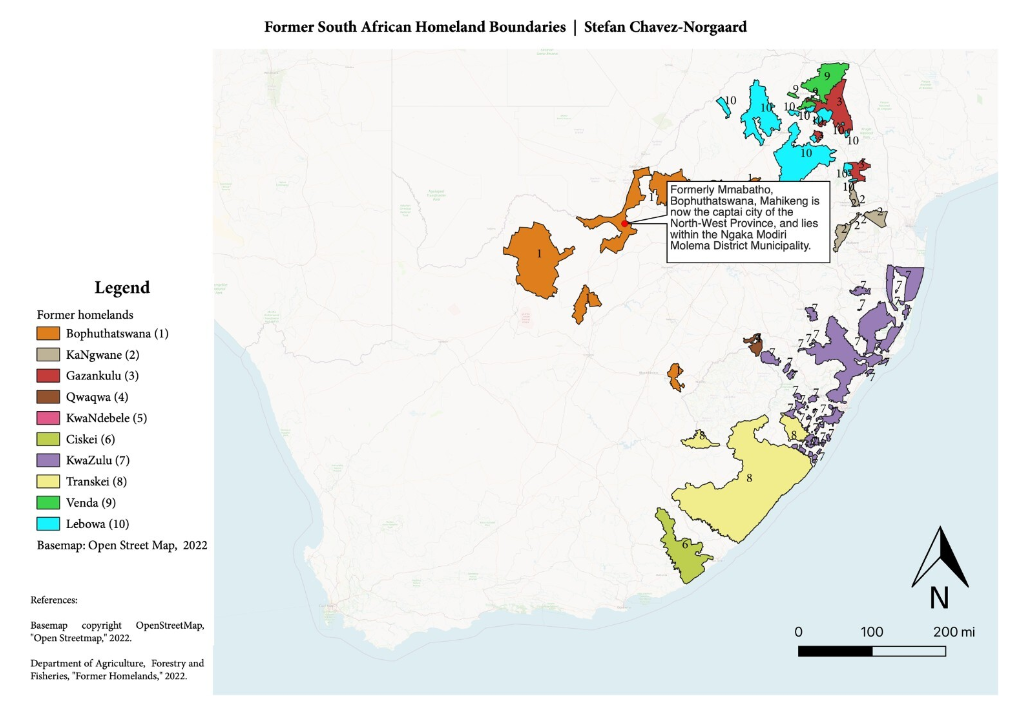Place renaming, jurisdictional integration, and political representation
Lessons from South Africa

This journal article examines the dual processes of place renaming and jurisdictional rescaling in South Africa since the 1994 transition from apartheid to democracy, particularly under the African National Congress (ANC). It explores how these processes intersect to address political-economic, symbolic, and mnemonic dimensions of territorial inscription.
Key points include:
- Place Renaming and Jurisdictional Rescaling: The ANC has used place renaming and the establishment of local and district municipalities to rectify apartheid-era geographical inequalities and foster more equitable and redistributive localities. New jurisdictional names celebrate anti-apartheid heroes and aim to unify previously divided communities.
- Fieldwork Findings: Research conducted in Mahikeng Local Municipality (formerly Mmabatho and Mafikeng in the Bophuthatswana Bantustan) shows that while new local-government and district-level jurisdictions can integrate former divides, they also create new inequalities, particularly between different municipal categories and traditional versus municipal councils.
- Diverse Resident Perceptions: Residents have varied perceptions of these changes:
- Some see the new names and jurisdictions positively and admire state efforts.
- Others view these efforts as merely symbolic, serving as a façade for corruption and state-capture.
- Yet others appreciate the initiatives but criticise their limited impact, attributing shortcomings to broader global systems of racial-capitalist urbanisation.
- Implications: The research highlights that while place-naming and jurisdictional reforms are important steps towards addressing apartheid-era inequalities, they must be complemented by grassroots, popular-democratic decision-making to be truly effective and equitable.
In summary, the article underscores the complex and multifaceted nature of post-apartheid territorial restructuring in South Africa, revealing both its potential benefits and inherent challenges.
Abstract based directly on original source.


Comments